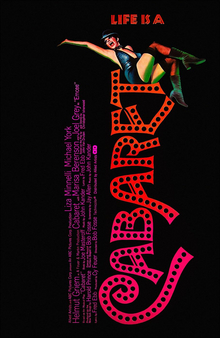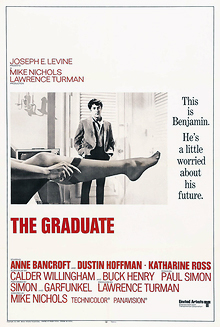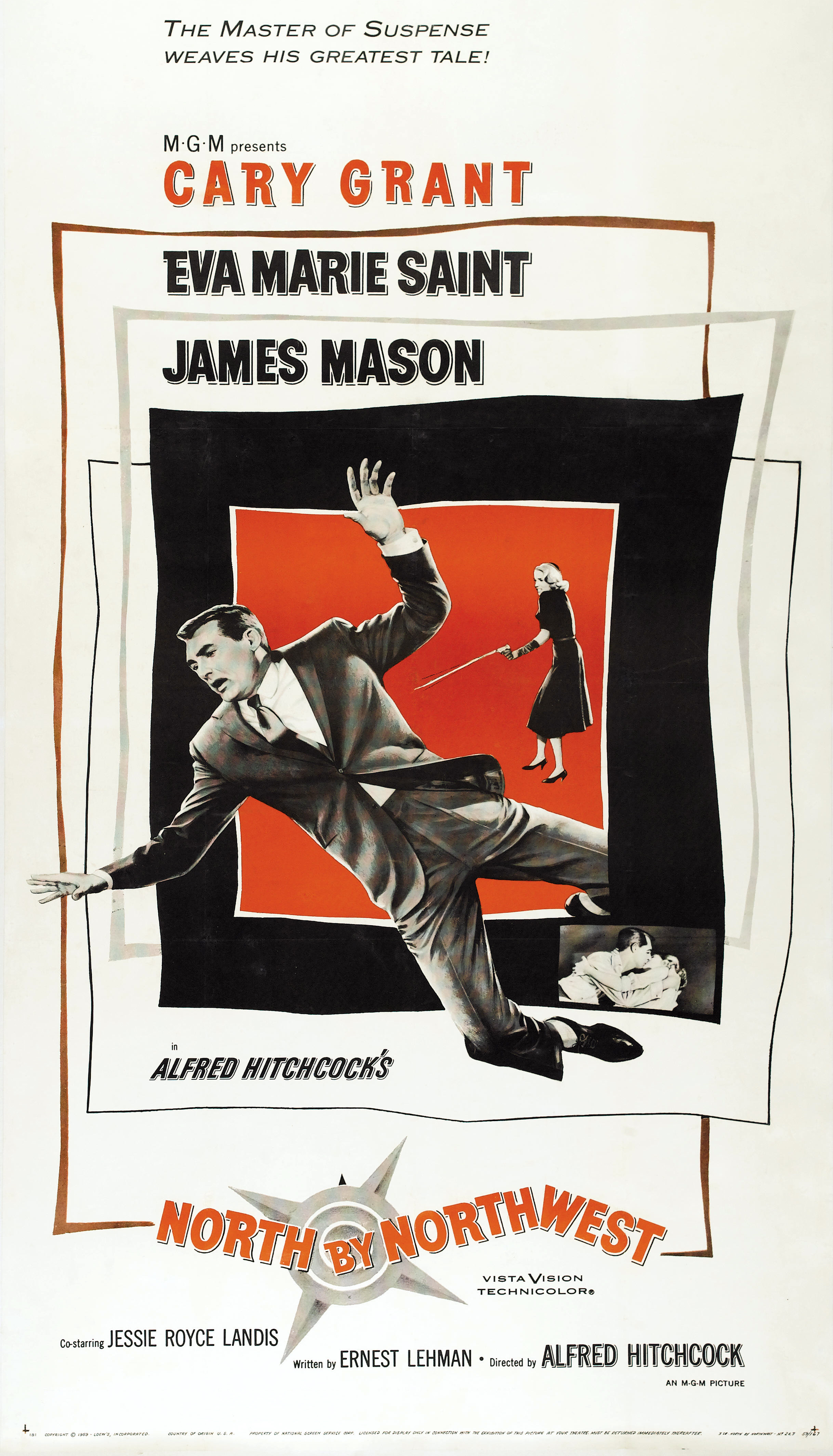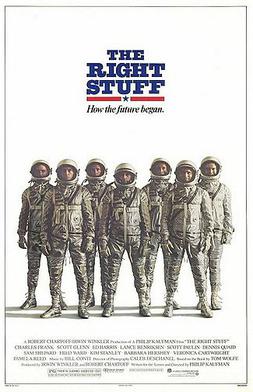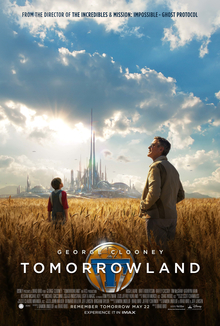A blog formerly known as Bookishness / By Charles Matthews
"Dazzled by so many and such marvelous inventions, the people of Macondo ... became indignant over the living images that the prosperous merchant Bruno Crespi projected in the theater with the lion-head ticket windows, for a character who had died and was buried in one film and for whose misfortune tears had been shed would reappear alive and transformed into an Arab in the next one. The audience, who had paid two cents apiece to share the difficulties of the actors, would not tolerate that outlandish fraud and they broke up the seats. The mayor, at the urging of Bruno Crespi, explained in a proclamation that the cinema was a machine of illusions that did not merit the emotional outbursts of the audience. With that discouraging explanation many ... decided not to return to the movies, considering that they already had too many troubles of their own to weep over the acted-out misfortunes of imaginary beings."--Gabriel García Márquez, One Hundred Years of Solitude
Search This Blog
Tuesday, February 23, 2016
The Entertainer (Tony Richardson, 1960)
Sleazy old Archie Rice was one of Laurence Olivier's theatrical triumphs, proof that a renowned classical actor, known for his Hamlet and Oedipus and Coriolanus, could take on the "kitchen-sink realism" of an Angry Young Man, John Osborne, and add glory to his already celebrated name. But the film version is an example of the difficulties that have to be overcome when a play is translated into a movie. For even though Tony Richardson, who directed the 1957 Royal Court Theatre version, also directed the film, and the play's author did the screenplay as well (in collaboration with Nigel Kneale), the movie lacks energy and direction. The play alternates between what's going on in Archie Rice's house and his performances on stage, while the film "opens up" to show the English seaside resort town where Archie's music-hall is located, and some of the events that are merely narrated in the play, such as Archie's affair with a young woman whose family he tries to persuade to back him in a new show, are dramatized in the movie. Olivier's creation of the "dead behind the eyes" Archie is superb, and his music-hall turns in the film manage to suggest that even though he was a hack as a performer Archie could have held an audience's attention, though it's clear that seeing Olivier on an actual stage would have had a stronger impact from sheer immediacy. The cast is uniformly fine: Brenda de Banzie as Archie's second wife, Roger Livesey as his father (Livesey was in fact only a year older than Olivier), Joan Plowright as his daughter, and making their film debuts, Alan Bates and Albert Finney as his sons. But in the end it's a collection of impressive performances in service of a not very involving story of a self-destructive man and his dysfunctional family.
Monday, February 22, 2016
Cabaret (Bob Fosse, 1972)
I've been reading Thomas Mann's The Magic Mountain, in which a young German engineer, recuperating in a tuberculosis sanatorium in the Swiss Alps, decides to read up on physiology. He concludes that life itself is a kind of disease, "a fever of matter." In Cabaret, Sally Bowles (Liza Minnelli) proclaims that "life is a cabaret, old chum." Yet given that the cabaret presided over by the Master of Ceremonies (Joel Grey) in the film is a febrile sort of place, there's a coherence between the two views. Director Bob Fosse would himself go on to posit a relationship between illness and creativity in All That Jazz (1979). And Sally Bowles's favorite phrase, the seeming oxymoron "divine decadence," suggests that out of decay comes something higher. What would be the opposite, after all: satanic order? In perhaps the movie's most chilling moment, Fosse gives us a closeup of a cherubic, well-scrubbed young face, the very opposite of the Master of Ceremonies's rouged and lipsticked face that has dominated the film from the very beginning. The boy then begins to sing "Tomorrow Belongs to Me," and as the camera pulls back we see that he is wearing the uniform of the Hitler Youth. As the crowd at the open-air beer garden, which has to this point seemed an idyllic setting, joins in and begins to raise their arms in the Nazi salute, we view the very definition of satanic order. But enough German dialectics here; just let me say that Cabaret is one of my favorite movie musicals. As I have said before in this blog, I prefer musicals created originally for the movies, like the Warner Bros. films with the kaleidoscopic routines of Busby Berkeley, the Fred Astaire-Ginger Rogers movies, or the sublime Singin' in the Rain (Stanley Donen and Gene Kelly, 1952), and not the musicals like West Side Story (Jerome Robbins and Robert Wise, 1961) or My Fair Lady (George Cukor, 1964), that were translated to film from the stage. My admiration for Cabaret would seem to be an exception to that rule, except that when Fosse became director, he jettisoned the book that had been written by Joe Masteroff for the 1966 Broadway musical and went back to the source, Christopher Isherwood's 1939 The Berlin Stories. Jay Presson Allen had been commissioned to write the screenplay, but Hugh Wheeler (credited as "research consultant") heavily revised what she had written. Fosse also dropped many of the songs by John Kander and Fred Ebb, though he added new ones by them: "Money, Money" and "Mein Herr," along with one of their older songs not from the Broadway version, "Maybe This Time." And he made the significant decision to keep the musical numbers confined to the Kit Kat Klub stage -- a touch of cinematic realism that seems essential to a story set in Berlin during the rise of the Nazis. The result is a musical essentially created (or at least re-created) for the movies. It received 10 Oscar nominations and won eight of them, including awards for Minnelli, Grey, and Fosse, as well as for Geoffrey Unsworth's cinematography. The only categories in which it lost were best picture and best adapted screenplay, which went to The Godfather and its screenwriters, Mario Puzo and Francis Ford Coppola.
Sunday, February 21, 2016
The Graduate (Mike Nichols, 1967)
The Graduate and It Happened One Night (Frank Capra, 1934) are both fine examples of the "runaway bride" trope, but there the resemblance ends in irony. In the latter, Ellie (Claudette Colbert) balks at the altar and runs away, veil and train streaming, to the arms of Peter (Clark Gable), but we never see them together: The film ends with the sound of a toy trumpet and we see the "walls of Jericho" blanket falling. It's a gratifying "happy ending," in which order is brought out of chaos, which is the way a romantic comedy is traditionally supposed to end. But in The Graduate the situation is reversed: The wedding that is supposed to restore order ends in chaos, as Benjamin (Dustin Hoffman) arrives to carry off Elaine (Katharine Ross), interrupting the nuptial kiss after the wedding is over. And then we see them together on the bus, as Nichols holds the camera on their faces just a little longer than he might: The smiles on their faces begin to fade, and uncertainty takes hold. We aren't supposed to wonder about what happens to Ellie and Peter, but we can't help feeling the chill of reality fall over Elaine and Benjamin. Watching The Graduate today, I find it a troubling, even cynical treatment of some serious themes. Benjamin, for example, seems to be designed as a comic figure, with his little gulps and tics and his awkwardness when faced with the seductive Mrs. Robinson (Anne Bancroft). But a more sympathetic viewer might diagnose him as clinically depressed, desperately being borne along by the tide of events, just as he's borne along by the moving sidewalk at the airport in the film's beginning, and then trying to avoid the consequences of the freedom he has earned by graduating. He escapes from the adult world into his room, with its burbling fish tank that foreshadows his underwater escape when he's expected to "perform" in the scuba gear he's been presented by his parents. When he does commit himself to a course of action, deciding suddenly and almost arbitrarily that he will marry Elaine, he has clearly lost his mind. And is there a sadder figure in movies than Mrs. Robinson, who lives in alcoholic denial of the disaster her life has become? Bancroft's performance in the scene in which Benjamin tries to get her to open up about her life is simply stunning. The screenplay by Calder Willingham and Buck Henry is the only really funny part of the film, with its classically quotable lines: "Plastics." "Mrs. Robinson, you're trying to seduce me. ... Aren't you?" "I think you're the most attractive of all my parents' friends." It's Nichols's direction that turns our attention to the reality undermining the comedy. The Graduate is often seen as a kind of twin to Bonnie and Clyde (Arthur Penn, 1967): two films that announce an epochal shift in Hollywood, upending audience expectations by addressing themselves to a more sophisticated young audience. As a satire on upper-middle-class life in the mid-20th century that masquerades as a romantic comedy, The Graduate was enormously influential. I just can't make up my mind whether that influence was for the good.
Saturday, February 20, 2016
A Midsummer Night's Dream (Max Reinhardt and William Dieterle, 1935)
 |
| James Cagney and Anita Louise in A Midsummer Night's Dream |
Demetrius: Ross Alexander
Hermia: Olivia de Havilland
Helena: Jean Muir
Bottom: James Cagney
Flute: Joe E. Brown
Oberon: Victor Jory
Titania: Anita Louise
Puck: Mickey Rooney
Quince: Frank McHugh
Snout: Hugh Herbert
Snug: Dewey Robinson
Theseus: Ian Hunter
Hippolyta: Verree Teasdale
Director: Max Reinhardt, William Dieterle
Screenplay: Charles Kenyon, Mary C. McCall Jr.
Based on a play by William Shakespeare
Cinematography: Hal Mohr
Art direction: Anton Grot
Music: Erich Wolfgang Korngold
Costume design: Max Rée
Choreography: Bronislava Nijinska
The spirit that animates this version of A Midsummer Night's Dream is not that of William Shakespeare but Felix Mendelssohn. Shakespeare's text has been trimmed to a nubbin and hashed up by the "arrangers," Charles Kenyon and Mary C. McCall Jr., and it's gabbled by the all-star cast. Strangely, Olivia de Havilland and Mickey Rooney are the worst offenders, and they are the only members of the cast of Max Reinhardt's celebrated 1934 Hollywood Bowl production who made it into the movie. De Havilland delivers her lines with heavy emphasis on seemingly random words and with odd pauses, while Rooney punctuates every line with giggles, chortles, and shrieks that affect some viewers like fingernails on a chalkboard. Nobody in the cast seems to be aware that they're speaking verse. Fortunately, the decision was made to use the Mendelssohn overture and incidental music (along with snippets of other works by Mendelssohn), and to have it orchestrated by Erich Wolfgang Korngold. The result is an opulently balletic version of the play, taking advantage of what can be done in movies that can't be done on stage. Is it good? Maybe not, but it's much more fun than the stodgily reverent version of Romeo and Juliet (George Cukor, 1936) that MGM came up with the following year. Casting James Cagney as Bottom/Pyramus and Joe E. Brown as Flute/Thisby was a masterstroke, and if they had been directed by someone with a surer sense of American comic idiom than Reinhardt, the Viennese refugee from Hitler who spoke very little English (Dieterle acted as interpreter), the results would have been classic -- as it is, they're just bumptious fun. Much of the design for the movie is sheer camp, reminiscent of the twee illustrations for children's books in the early 20th century. But there is a spectacular moment in the film when Oberon gathers the fairies, gnomes, and bat-winged sprites to depart, under a billowing black train that sometimes resembles smoke. The cinematography by Hal Mohr won the only write-in Oscar ever granted by the Academy.
Friday, February 19, 2016
North by Northwest (Alfred Hitchcock, 1959)
There's a famous gaffe in North by Northwest, in the scene in which Eve Kendall (Eva Marie Saint) shoots Roger Thornhill (Cary Grant). Before she fires the gun, you see a young extra in the background stop his ears against the noise, even though it's supposed to surprise and panic the crowd. It's so obvious a mistake that you wonder how the editor, George Tomasini (who was nominated for an Oscar for the film), could have missed it. The usual explanation is that he couldn't find a way to cut it out, or didn't have footage to replace it. And after all, in the days before home video, would the audience in the theater notice? Even if they did, they would have no easy way to confirm that they had actually seen it. But I have a different suspicion: I think that they showed the goof to Alfred Hitchcock, and that he laughed and left it in. For above all else, North by Northwest is a spoof, a good-natured Hitchcockian jest about a genre that he had virtually invented in 1935 with The 39 Steps: the chase thriller, in which the good guy finds himself on the run, pursued by both the bad guys and other good guys. The ear-plugging kid fits in with the film's general insouciance about plausibility. A couple who climb down the face of Mount Rushmore, she in heels (and later in stocking feet) and he in street shoes? A lavish modern house with a private air strip that seems to be on top of the mountain, only a few hundred yards from the monument? A good-looking man who seems to go unnoticed by the crowds in New York and Chicago and on the train in between, even though his face is on the front page of every newspaper? A beautiful blond woman who shows up just at the right moment to take him in and not only hide him on the train but make love to him? Only a director with Hitchcock's skill and aplomb could take on such a tall tale and make it work, keeping you thoroughly entertained in the process. Of course, he had a good screenplay by Ernest Lehman to work with, along with one of the greatest leading men of all time. He had a leading lady with enough skill to evoke his favorite leading lady, Grace Kelly, without embarrassing herself (as Tippi Hedren came close to doing when she tried). He had Bernard Herrmann's wonderful score, alternately pulse-pounding and romantic, and Robert Burks's cinematography. He had James Mason, Martin Landau, and Jessie Royce Landis as support. I would call it my favorite Hitchcock film, but that's maybe only because I've just seen it, and my ranking will probably change the next time I see Notorious (1946) or Rear Window (1954) again.
Thursday, February 18, 2016
The Right Stuff (Philip Kaufman, 1983)
With its brightly irreverent tone toward subject matter that typically brought out pious patriotism in Americans, The Right Stuff feels more like a film of the 1970s than of the Reagan '80s, which may be why it was a box-office disappointment. It remains true that some of the parts of the film -- the caricatures of the German scientists, the publicists, the press, and politicians like Lyndon Johnson (Donald Moffat) -- don't fit snugly with the genuine heroism shown by the astronauts and test pilot. But that's because writer-director Philip Kaufman dared to assume a point of view on the material that was fresh and unconventional -- a rarity in American film of the '80s. Some of the tone of the film can be found in its source, Tom Wolfe's book, which was designed as a corrective to the "official story" of the Mercury 7 that was provided by Life magazine. Instead of squeaky clean superbeings devoted to wife and family, the astronauts were just human beings, frequently raunchy, irreverent, and more than a little inclined to step out of marital bounds. The film's great glory is its all-star cast (though few of the actors in it were stars before it was made), with particularly good work coming from Sam Shepard, who received a supporting actor Oscar nomination as Chuck Yeager, the test pilot that the astronauts wanted to be, even as NASA and the scientists wanted them just to be glorified lab rats, plus Scott Glenn as Alan Shepard, Ed Harris as John Glenn, Dennis Quaid as Gordon Cooper, and Fred Ward as Gus Grissom. There is similar strength in the female cast, particularly Barbara Hershey as Glennis Yeager, Veronica Cartwright as Betty Grissom, Pamela Reed as Trudy Cooper, and Mary Jo Deschanel as the publicity-shy Annie Glenn, whose embarrassment at her stammer leads to a wonderfully satisfying standoff against an increasingly irate LBJ -- a man whose whims were seldom ignored. Deschanel's husband, Caleb, is the film's cinematographer. (Yes, they are the parents of Zooey Deschanel.) The movie was nominated for eight Academy Awards and won four: for sound, film editing, sound effects editing, and Bill Conti's score.
Wednesday, February 17, 2016
Tomorrowland (Brad Bird, 2015)
A critical and commercial flop, Tomorrowland is a little too much a film for kids to satisfy sci-fi geeks, and a little too heavy on the sci-fi to hold the attention of kids. It has a few good things going for it: the presence of George Clooney and Hugh Laurie in its cast, and nice performances from two young actors, Britt Robertson as Casey and Raffey Cassidy as Athena. (It's particularly good to see a sci-fi movie for kids with girls as the protagonists.) Unfortunately, the screenplay by director Bird and Damon Lindelof, with contributions to the story from Jeff Jensen, is dauntingly overcomplicated and more than a little preachy. The premise is that somewhere after the 1964 New York World's Fair, with its glittering images of the future, our culture took a turn toward pessimism. We no longer believe that we can progress toward a more equitable society or that we can solve environmental problems with collective application of science and technology, and this pessimism creates a kind of self-fulfilling prophecy. Those of us who were old enough in 1964, after the Kennedy assassination and at the beginning of the Vietnam War, may remember the mood a little more darkly than the film posits. But even granted the premise, it seems unlikely that our contemporary malaise is going to be lightened by launching a cyberpunk spaceship designed by Gustave Eiffel, Jules Verne, Nikola Tesla, and Thomas Edison into another dimension. Keegan-Michael Key has an amusing bit as the proprietor of a sci-fi memorabilia shop who says his name is Hugo Gernsback, an in-joke for science fiction fans. (His partner, played by Kathryn Hahn, is named Ursula. As in Le Guin, perhaps?) The special effects are elaborately routine CGI stuff.
Tuesday, February 16, 2016
It Happened One Night (Frank Capra, 1934)
 |
| Clark Gable and Claudette Colbert in It Happened One Night |
Monday, February 15, 2016
House of Flying Daggers (Yimou Zhang, 2004)
From the kaleidoscopic color of the Peony Palace at the beginning of the film through the final duel seen through the scrim of a blizzard, House of Flying Daggers is visually extraordinary, fully deserving of its Academy Award nomination for Xiaoding Zhao's cinematography. It tends, however, to be a collection of brilliant set pieces, including a spectacular battle in a bamboo forest, held together by what could be a conventional love triangle -- if only the stories of the three members of the triangle, Jin (Takeshi Kaneshiro), Leo (Andy Lau), and Mei (Zhang Ziyi ), weren't so extraordinarily complicated. In the story by director Zhang Yimou , Feng Li, and Bin Wang, it is 859 C.E., and the police are trying to root out the House of Flying Daggers, a group of Robin Hood-style rebels against the government of the Tang Dynasty. Police captain Leo and his subordinate, Jin, hear that an agent of the Flying Daggers is working incognito at the Peony Palace, a brothel, so they arrest Mei, a blind dancer. But neither Mei nor Leo is exactly who they appear to be, which is unfortunate for Jin, who falls in love with Mei, with fatal consequences. In the end, it's best just to sit back and admire the performances of the three actors, especially Zhang Ziyi , who is truly astonishing in both the action sequences and the dramatic scenes. In addition to Zhao's cinematography, the visual impact of the film depends largely on the work of production designer, Tingxiao Huo, art director Zhong Han, and costume designer Emi Wada. Most of the exterior scenes, with the exception of the bamboo forest, were filmed on location in the Carpathian Mountains of Ukraine.
Sunday, February 14, 2016
Of Human Bondage (John Cromwell, 1934)
Somerset Maugham's 1915 autobiographical novel Of Human Bondage is one of those books nobody seems to read anymore. It's not "literary" enough for academia and it's too old-fashioned for today's readers of popular fiction. But it was a big deal when RKO bought the screen rights intending it as a vehicle for Leslie Howard as the protagonist, Philip Carey. It was director John Cromwell who, having just seen Bette Davis in The Cabin in the Cotton (Michael Curtiz, 1932), thought the young Warner Bros. contract player might be right for the role of the cockney waitress Mildred in Of Human Bondage. (The Cabin in the Cotton is the one in which she plays a backwoods seductress who tells Richard Barthelmess's character, "I'd like to kiss you, but I just washed my hair.") Davis, who was unhappy with the way Warners was handling her career, also wanted to play Mildred, and finally wore down Jack Warner's resistance to lending her to RKO. It was the film that made her a star, though she continued to battle with Warners for as long as they held her contract. It is a sensational performance in a not-very-good movie. The infatuation of Philip with Mildred is only a small part of the novel, though it's probably the most interesting, and to emphasize it, screenwriter Lester Cohen had to jettison a great deal of plot and trim some of Philip's other relationships -- notably with the romance novelist Norah (Kay Johnson) and the young Sally Athelny (Frances Dee) -- to the point of incoherence. Nor did he really succeed in making Philip's attraction to Mildred entirely credible, considering that much of the movie deals with her coldness toward him. Howard does what he can, but it's really all Davis's show, and when she's not on screen you feel everything go slack. When Academy Awards time came around, everyone expected her much talked-about performance to land her a nomination for best actress, but she was overlooked. The outcry led the Academy to change its rules for the Oscars, allowing write-ins for the first time, but although Academy records show that Davis came in third, the award went to Claudette Colbert for It Happened One Night (Frank Capra). Next year, Davis would win the first of her two Oscars for Dangerous (Alfred E. Green), a movie that's if anything even weaker than Of Human Bondage, so the award is widely regarded as a kind of consolation prize for the previous year's oversight.
Subscribe to:
Comments (Atom)

